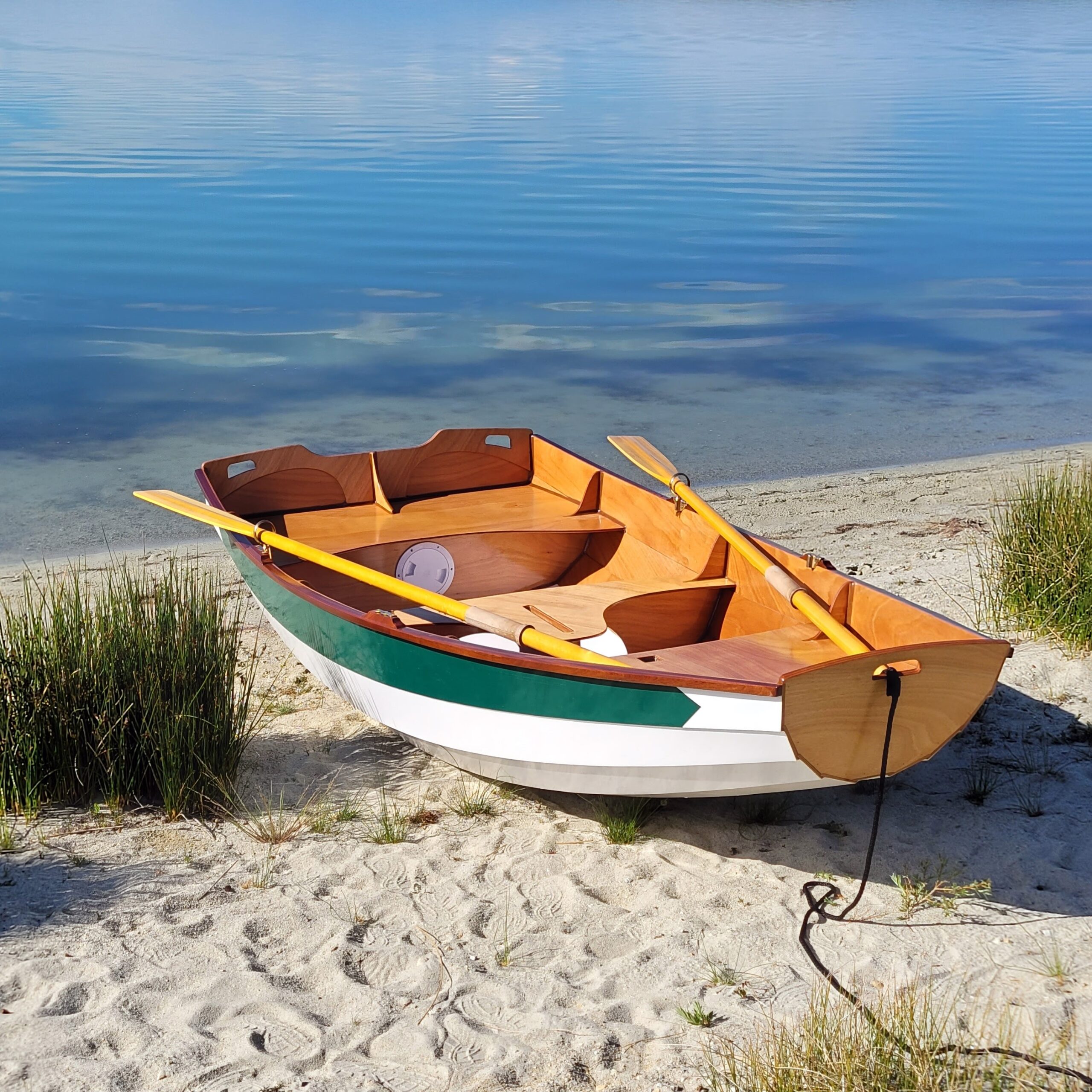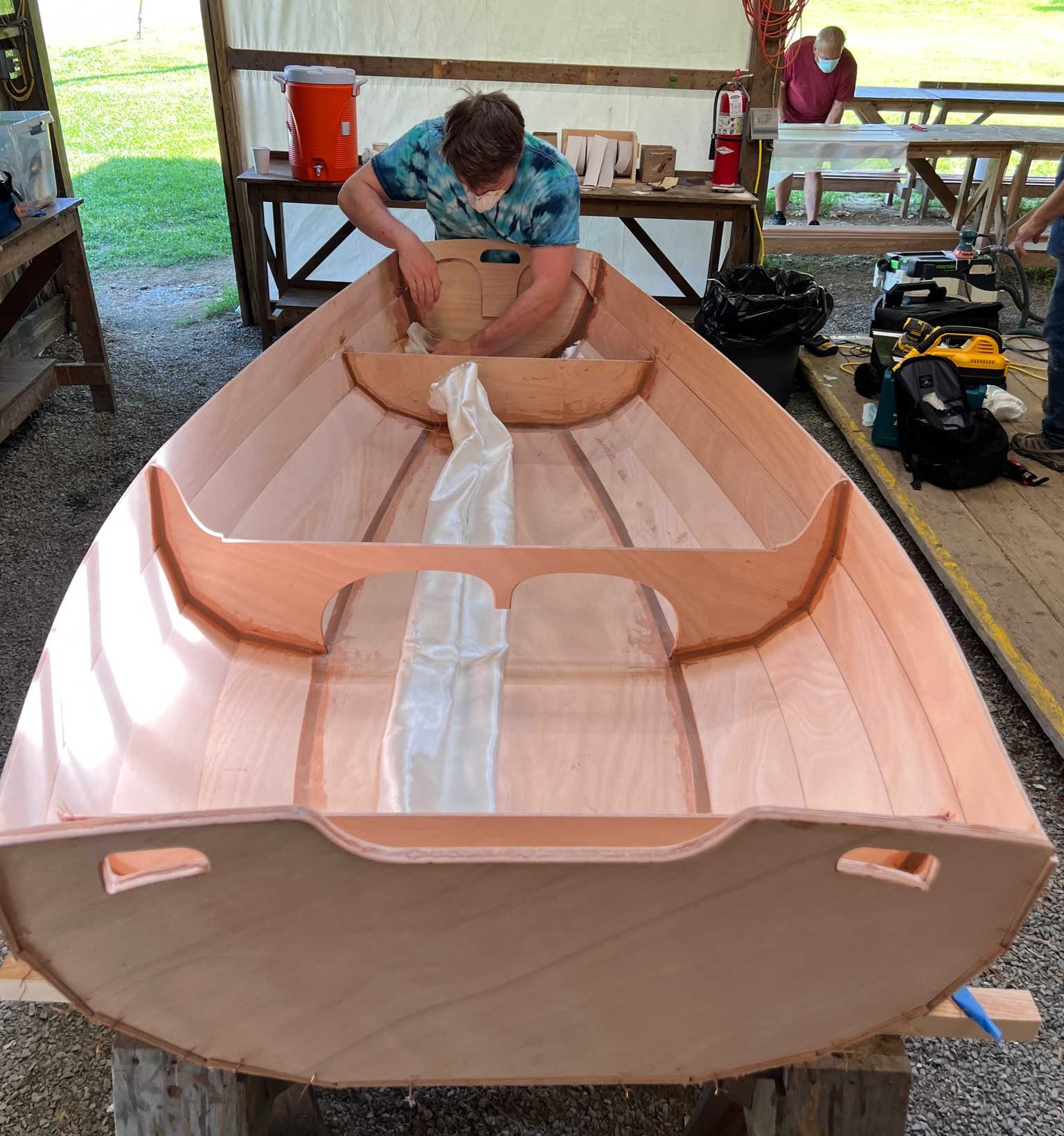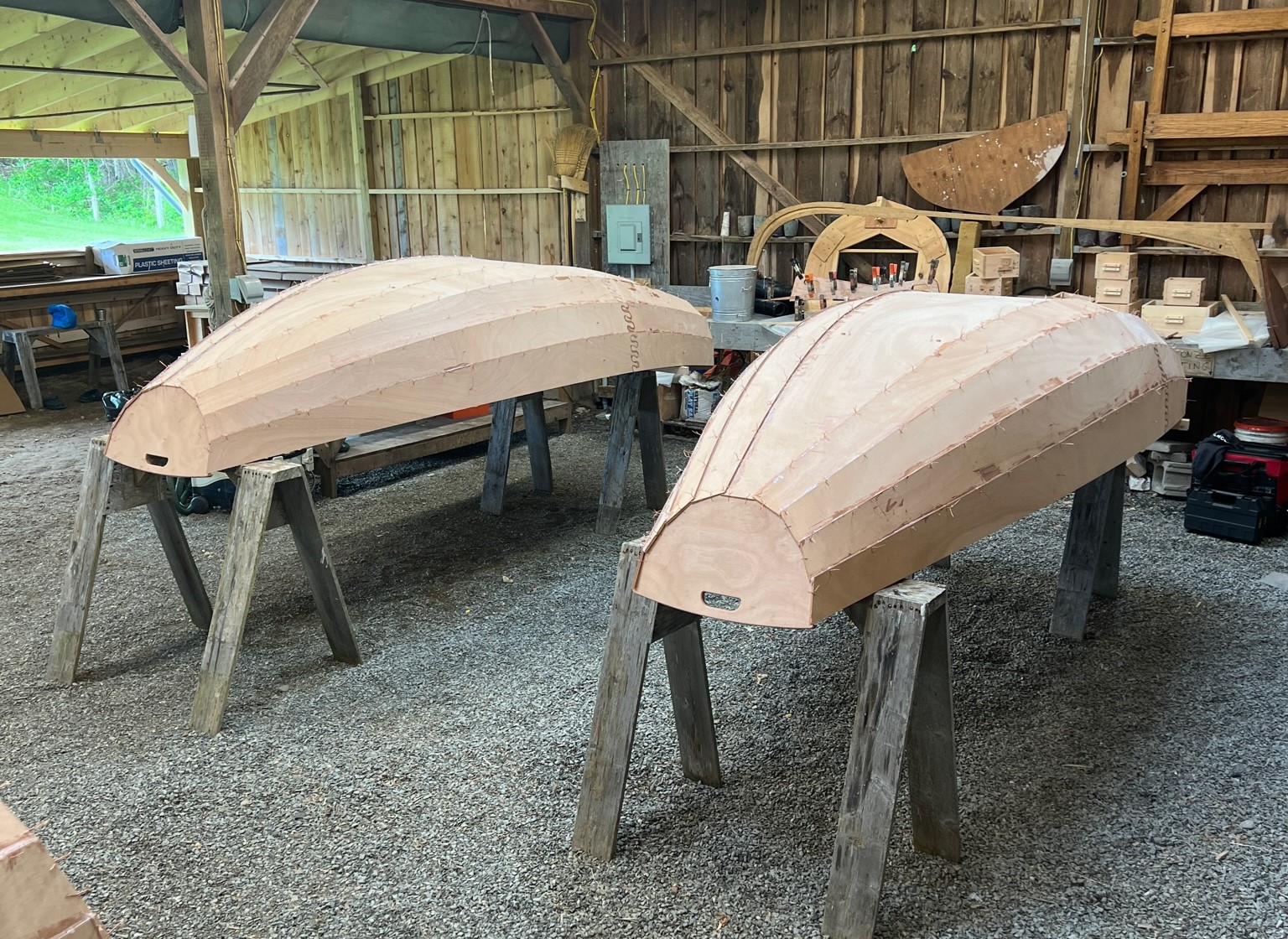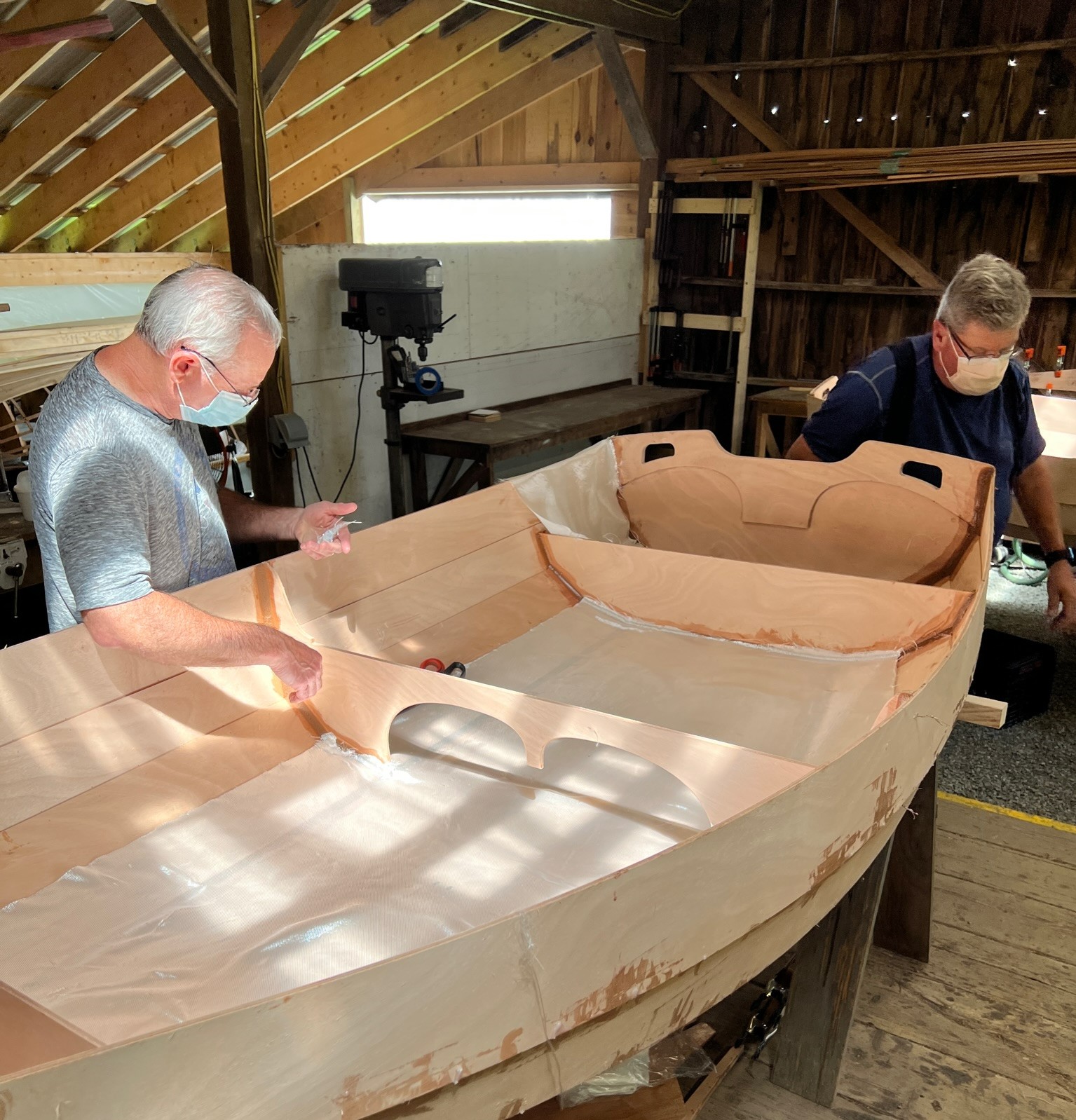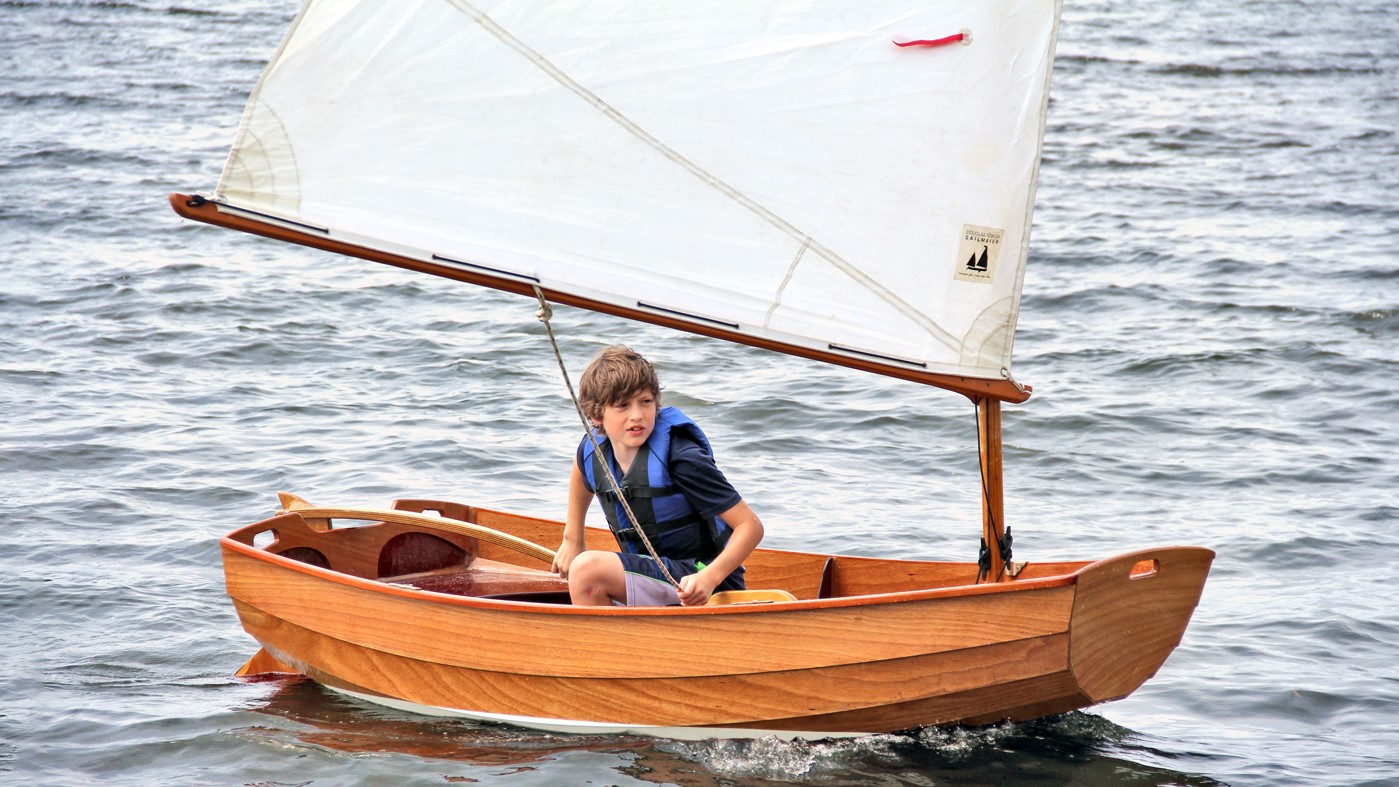
Build Your Own Eastport Pram/Passagemaker Dinghy
Choose either the 7’9” Eastport Pram or the 11’7” Passagemaker Dinghy.
- Dates
- October 27 – November 1
- Location
- Chesapeake Light Craft, Annapolis, Maryland
- Tuition
- $950 (partner $450)
- Materials
- See Description
- Instructor
- Andrew Schroeher
- Experience Level
- Novice
- Activity Level
- High
This is a six-day course ending Saturday
Passagemaker Dinghy Eastport Pram
Rowing Version: $1918 Rowing Version: $1447
Sailing Version (Lug): $3718 Sailing Version (Lug): $2693
Sailing Version (Sloop): $4035
Other Sessions: July 13-19 (Brooklin, ME)
Note: Please only register the initial builder and then reach out to the School offices to register any partners that will be joining you.
In this class, students have the opportunity to construct a beautiful lapstrake yacht tender that may be rowed, sailed, or even powered with a small outboard. Something like 1200 of these popular sailing tenders have been built worldwide, testifying to the enduring qualities of attractive lines, light weight, and practical layouts that work for yachtsmen or daysailors alike.
The Passagemaker Dinghy is easy to build but looks great and performs beautifully. A smooth glide when rowing, spirited performance when sailing, and steady handling with an outboard mark this Norwegian-style lapstrake pram. The Eastport Pram is a boat that is as easy and satisfying to row and sail as you can expect on such a short waterline. Used as a tender to a larger boat, or kept at a dock, it’s a near-perfect small boat. A nesting version is available for ultra-compact storage.
With the help of the instructor, each student will assemble his or her own dinghy from a Chesapeake Light Craft kit. The hulls utilize CLC’s patented LapStitch™ construction method, in which stitch-and-glue techniques create lapstrake hulls of traditional appearance. First, the planks are wired together to create the hull shape, then bulkheads are inserted before the planks are neatly “welded” together with epoxy. The students reinforce the hulls with fiberglass cloth and cedar rails, then add the daggerboard trunk and seats. (The sailing rig is optional, but the class will proceed under the assumption that the boat will be used for both rowing and sailing.) As with all of our courses in which students build their own boat, this will be a busy week, so expect to spend a few evenings in the shop. By noon on Saturday you’ll have an assembled hull, ready for sanding and sailing rig.
-
Who is this course best suited for?
This course is appropriate for someone with little or no experience. The course is designed around the idea that you have not done this before or know very little about the subject. Students should pay more attention to suggested readings or videos to help familiarize themselves ahead of time.
This course involves a high level of activity throughout the week Including: sustained sanding or hand planing, standing and working most of the day.

Register For This Course
Courses fill quickly, so don't delay if this is a course you want to take.

